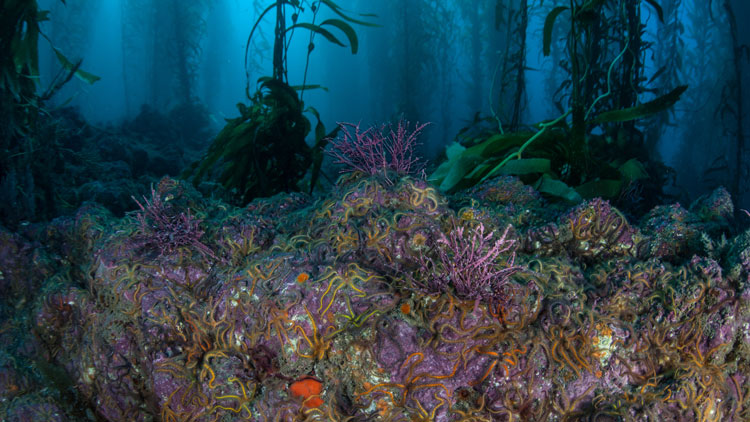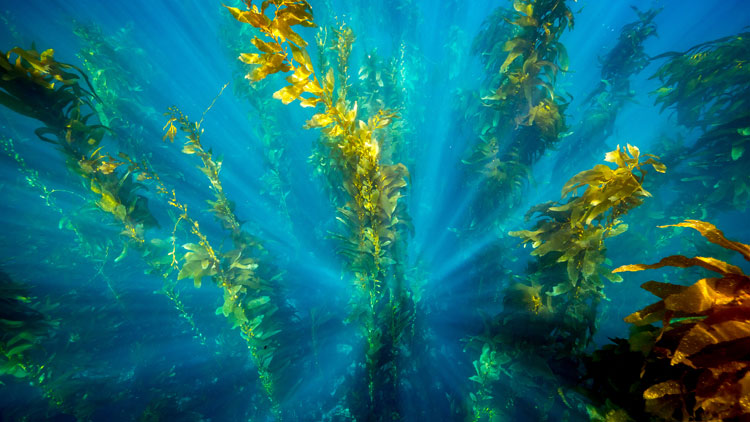
What is kelp?
Because kelp looks so much like grass, many people assume it is a plant. However, kelp belongs to the kingdom Protista. This kingdom is made up of organisms with simple cellular organization. Although kelp looks like a plant, its cells are much simpler than plant cells.
Despite this simplicity, kelp serves an important role in our oceans. It is a source of food and shelter for a variety of aquatic animals. Brittle stars like the ones pictured above, as well as other organisms like snails, otters, fish, octopus, urchins, and anemone live among the kelp. Humans also use kelp in a variety of products. Certain ice creams, salad dressings, shampoos, and even medicines are made using kelp.

Why does kelp need help?
Many factors damage and destroy kelp. Overgrazing by urchins reduces the size of kelp forests. Storms like El Niño uproot kelp from the ocean floor. In addition to these natural causes, humans can also harm kelp through over-harvesting and pollution.
When kelp is destroyed, there are many environmental impacts. There is reduced animal diversity, and more erosion occurs along coastlines. Most importantly, when kelp is destroyed it can no longer absorb carbon [a chemical compound consumed during photosynthesis]. This means that the unused carbon will end up back in the environment. Too much carbon in the ocean makes it acidic, and too much carbon in the atmosphere contributes to rising temperatures on Earth.
What can we do?
The easiest thing you can do to help kelp is to reduce pollution. You can also support organizations that work to protect kelp. Some of these organizations support sustainable harvesting of kelp while others work to control animal populations to prevent kelp from being overeaten.
What Can You Do? Conduct research to investigate the cause-and-effect relationship between overfishing and the balance between the urchin and kelp populations. Share your findings with your classmates.
Photo Credit: (t)EthanDaniels/Shutterstock, (b)Jeremy Ryan/Shutterstock



